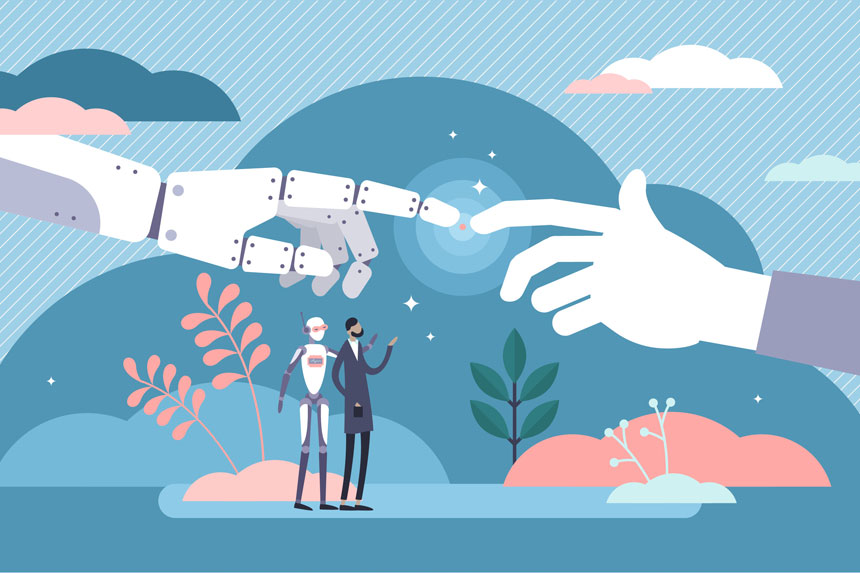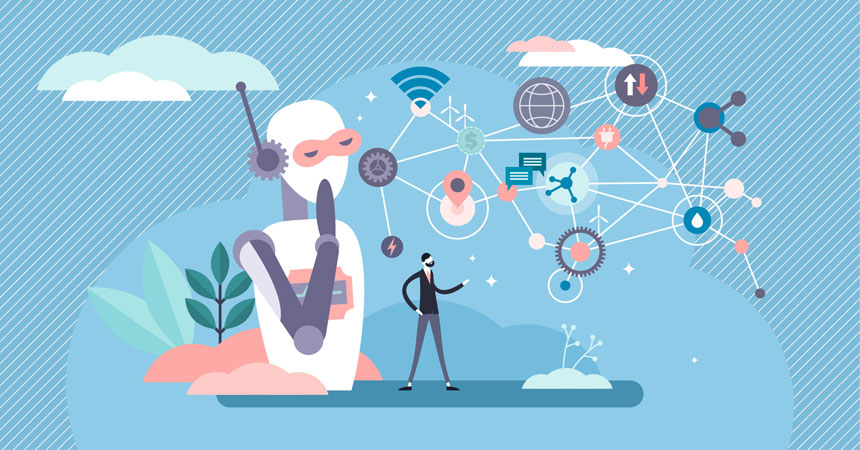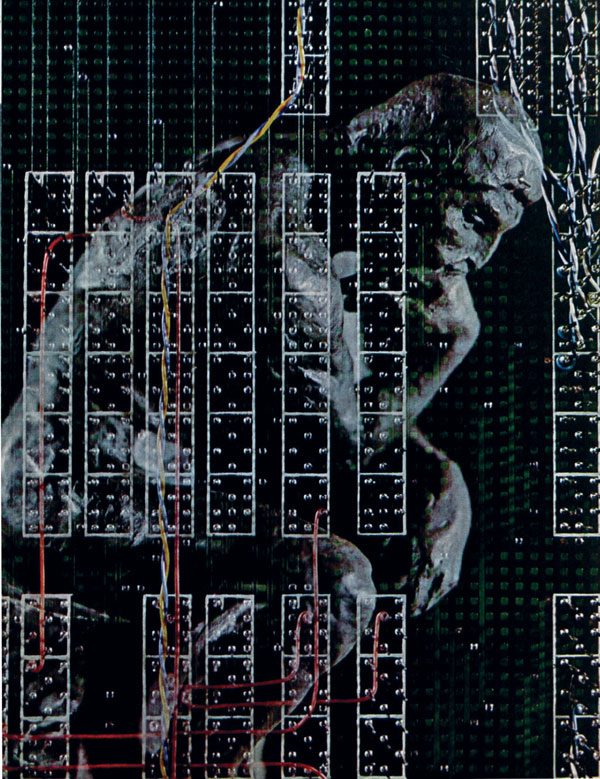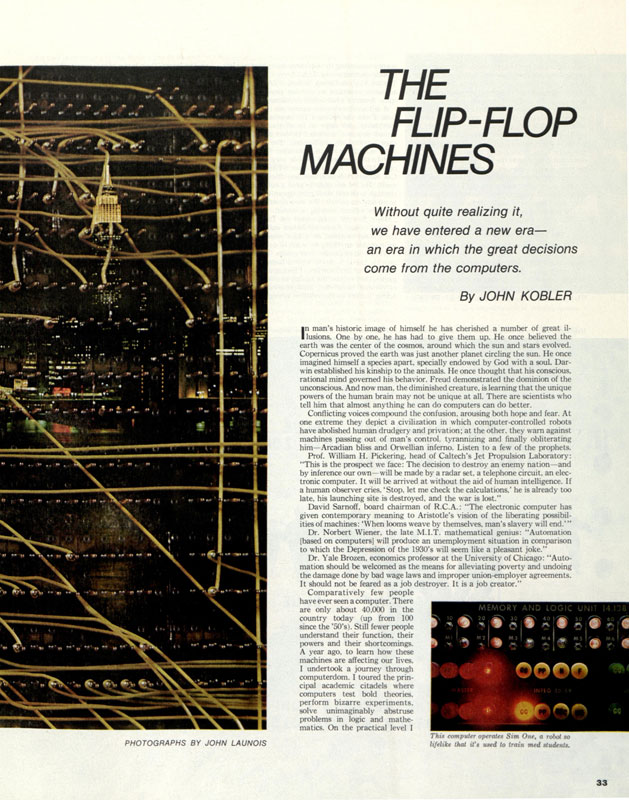Artificial Intelligence (A.I.) has taken over the headlines, with ChatGPT, Bing, and Google’s Bard announcing new breakthroughs almost daily. If you’ve been unaware or uninterested in A.I., now’s a good time to start paying attention. A.I. has changed our lives significantly in just a short time, but we’re at the genesis of advances that will eclipse current capabilities by leaps and bounds. A.I. researcher Demis Hassabis has said, “I’ve always believed that [A.I.’s] going to be the most important invention that humanity will ever make.”
A.I., in some form, has been around for years. Remember Clippy, the paperclip helper icon in an early version of Microsoft Word? Its (often klutzy) efforts to give you tips were annoying and laughable. But the power of A.I. is progressing dramatically. A prime example is Siri. At first, it was funny how “she” often got things wrong — but now she’s mostly getting them right. When GPS tools first came out, I thought, wow, these are great! But it would really be a game changer if they could help you avoid traffic jams. And now they do.
Today’s A.I. can help us schedule appointments, be better writers, sort digital photos using facial recognition, and fill in that blank spot when we can’t remember a name. A.I. can detect when someone is using our credit cards fraudulently, and can determine your buying and browsing habits to target advertisements to your interests.
So, what exactly is it? A.I. is broadly defined as any computer program that simulates human intelligence. Its origins date back to the dawn of the computer age, when pioneers like Alan Turing and Marvin Minsky envisioned machines that were much more human-like than the rudimentary calculation machines they were building. Early A.I. quickly got a bad rap because of unrealistic, outsized expectations. As a software engineer, I recall, back in the 1980s, when you would be laughed out of the room if you claimed your software had A.I. Ironically, these days no one will take your software seriously if it doesn’t claim to use A.I. (buyer beware on that one).
ChatGPT has captured people’s attention by its impressive ability to generate prose based on prompts by the user. There are now fears that A.I. will soon supplant jobs previously done by knowledge workers. Schools and universities are concerned that ChatGPT could generate essays for students. And, of course, there are the greater concerns about what’s coming down the pike. Who can forget that pesky (and murderous) robot HAL from 2001: A Space Odyssey? For decades sci-fi writers have depicted sentient software that ultimately supersedes human intelligence and “decides” to rule the human race … or eliminate it. While some caution is well-founded, ChatGPT and software like it is meant to assist people in doing their jobs, rather than replace them.
In conventional computer science, we program a computer with the precise method of solving a problem. A.I. uses a process known as machine learning to program the computer to learn how to solve a problem on its own. Basically, this involves absorbing massive amounts of data, seeking patterns, and then predicting outcomes within a percentage of certainty. For example, the computer that won Jeopardy! examined millions of possible answers before arriving at the correct one. The human brain may be more intuitive than a computer, but it can’t possibly crunch data on such a huge scale. And computing speed is advancing exponentially. That means that A.I. will get progressively more powerful and useful in years to come.
In the near future, A.I. will be embedded in all that we do. Eventually self-driving cars will be the norm rather than the exception, allowing mobility for those who can’t drive and a safer transportation experience for those who can. Home care robots will replace human caregivers, saving families time, money, and drudgery in caring for the elderly.
Already, accident victims and wounded soldiers can control prosthetic limbs through brain implants. In the future, one can expect that you will be able to wear a helmet containing non-invasive brain-scanning technology that will allow direct communication with the A.I., replacing voice or typing interfaces. We’ll have to train our brains to give commands and instructions — while sheltering private thoughts.
A.I.s learn from experience, so your personal A.I. will soon come to know everything about you — your strengths, weaknesses, and intentions — and enhance you in all ways. Think of the A.I. as an augmentation of yourself or as a super-coach sitting on your shoulder, reminding you of that name that slips your mind, translating your words into another language when you travel, identifying health concerns such as an incipient tumor before it becomes life-threatening — and generally feeding you the right information for all situations.
Returning to the Hal 9000 problem, namely whether A.I.-powered computers can or will run amok: It has been observed that ChatGPT will pick up on negative societal biases. For instance, if an algorithm is trying to determine which job candidate is the best “fit,” it will look at what qualities correlate with a “successful employee.” If the company hired mainly non-diverse people, the algorithm will continue to recommend non-diverse candidates. This can have dire consequences when algorithms are assessing credit-worthiness for borrowers or recidivism rates for convicts as well as suitability for employment. That is a real problem that organizations are trying to solve.
One concern is that A.I. can’t tell you why it made a certain decision. For instance, did your GPS send you on a circuitous route to your destination because it wanted to help you avoid a traffic jam or because the alternate route was merely a few seconds faster? If we can’t know why a machine-learning algorithm made a certain decision, regulating it is going to be difficult. Governments have been trying to regulate A.I., but politicians don’t yet understand it well enough to draft effective regulation. Jay Obernolte, a Republican Congressman from California and the only member of Congress with a master’s degree in artificial intelligence, said, “the problem is that most lawmakers do not even know what A.I. is.”
New technology has always created more jobs than it destroyed, but it may be different this time. That’s because A.I. will soon be replacing knowledge-worker jobs rather than only administrative ones. News briefs, financial reports, and sports coverage have been automated for years. Now is the time to consider the social impact of jobs being automated en masse — even doctors, lawyers, and journalists may soon be redundant — and put a plan in place before we reach an employment crisis.
The concerns don’t end there. If A.I. knows everything about you, it can manipulate you in ways that will make targeted marketing look quaint. And in the universe of “fake news,” the fakes are going to get a whole lot more realistic and difficult to challenge. Imagine the possibility of creating a fake video showing a politician mouthing words they’ve never actually spoken or participating in some shameful activity that never actually occurred. That’s becoming easier than ever to do. As the saying goes, knowledge is power. Cynical opinion leaders and crooks will certainly use A.I. to mislead and defraud.
As for privacy, there’s no question that we’ll be giving up some of it in exchange for the benefits of A.I. Do you like your GPS? So do the companies that can tell where you are, what you might be up to, and what you need to buy. When you use A.I. tools, you pay for the convenience by giving corporations information which they can use for their own purposes.
As A.I. improves and becomes more widely adopted, it’s highly likely we will develop strong emotional attachments to it. Just like an intimate partner, it will know everything about us and support us in ways no human can. Relationships between humans will also need to adapt. Will finding a life partner be as essential as it is today? Procreation aside, we won’t be as dependent on other people, since we’ll have A.I. to fill in the blanks.
For all the concerns about the risks of A.I., the benefits are too great to be withheld. Just as a radiologist along with an A.I. is a better doctor than without, I am a better person when assisted by an A.I. Not everyone is good at everything. Did you ever wish you had a Google-like device implanted in your brain to feed you the right word during a presentation or conversation? Or an assistant to take notes at a meeting? Or someone to talk to when you have a problem or concern just as you would talk to a close friend or therapist? A.I. promises to smooth out all of the rough edges of life and make us the best versions of ourselves.
Humans not accompanied by an A.I. just won’t be able to compete or keep up. Just as evolution weeded out those not fit for survival, those who try to go it alone will be left behind. Biological evolution happens over thousands of years, but digital evolution has occurred in less than one generation. As A.I.s become super-intelligent, we will morph into the next version of humanity, with humans and A.I. more tightly bound. Will this be a step forward for humankind, or a step backward into dependence on a machine? Only the future holds the answer.
Roy Altman is founder of the software firm Peopleserv, Inc. He is an adjunct Professor at NYU and frequently writes about technology.
This article is featured in the July/August 2023 issue of The Saturday Evening Post. Subscribe to the magazine for more art, inspiring stories, fiction, humor, and features from our archives.
Become a Saturday Evening Post member and enjoy unlimited access. Subscribe now







Comments
I’m an engineer and I studied AI in post-grad school. There are a lot of lousy articles about AI, but this article was among the worst.
Living in a AI de-humanized world is about the worst thing I can think of… so glad I am a senior citizen.. What a horrible future we are leaving for the young..
Computers also were supposed to just be a ‘tool’ to help us process information faster … now computers are King, how many homes in America do not have one? They have become necessary to live in today’s world ..
Doctors today for example, are mostly terrible in comparison to days gone by – ..remember ‘family’ doctors who actually cared about their patients? I do. They do not exist today – doctors are just cogs in mechanized medical “group” corporations run by non-medical individuals that put faith in machines with the explicit purpose of making enormous sums of money. Machines diagnose and prescribe treatment for patients.
This hardly inspires confidence.
A caring physician is an anachronism in 2023 – the key is that humanism is missing – clinical settings run by corporatists instead of doctors who take the time to talk and care about their patients is a joke today. No more ‘family’ doctors, no confidence in large medical ‘groups’, insurance is a game of putting in the right codes, if you don’t have good insurance you might as well wait to die.. medical appointments today take months, too late for many people..who die waiting.
The bottom line is that somehow somewhere along the way we’ve lost our humanness, -some really believe that a mechanized predictable world built on a belief in machines will fulfill us as human beings. .. without emotions and hearts. As I said it’s good to be a senior …
In your article you outline how the AI receives all the information it needs to do its necessary program or requests. You do not come straight out and identify it so I will tell the world what it is. It is a human being. The entity that is not as smart as AI but without RI AI is not as smart. We as humans may not be as fast as AI but we are more accurate as to what the inquirer wants to know.
Another area that we have control over and should always have it is our privacy. Why would we be subject to some AI be privileged to own something that doesn’t have a clue what it is? It is my private business and I am the one who decides if anyone else and who they maybe can be part of it. Not some robotic electronic system that can spread to anyone who knows how to talk to it to find out about my business. And this is going to be open season for the hackers and scammers? Think really hard about who is going to using it and what it will be used for. There is no rush to get it out amongst the public. Look at what has happen so far with Web and the internet.
What we have presently with most humans having less intelligence than your average dog or house cat is unsustainable, sadly making artificial intelligence an absolute necessity.
what a dumb thing is happening! we are actually making things worse for ourselves instead of better. the bad news about AI far outweigh the good! example: you say it will lead to people using cars that drive themselves=it has been shown that people can believe that they are not needed at all and play games, read, sleep and turn around and play and socialize with others in the belief that they do not need to worry about safety. pitty those who can not afford to give up their old clunkers and have to drive on the same roads with these fools. that is only one thing. history shows us that new things change our lives and for better or worse make people loose jobs. think about it from today’s perspective-if fewer humans are needed to do almost everything what happens to all those babies that will be created by humans-no jobs mean welfare and who the heck will be working earning money to take care of their own let alone help their community. just because you invent something does not mean you let it out, is a sad truth humans need to learn!